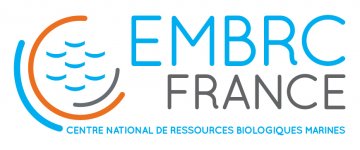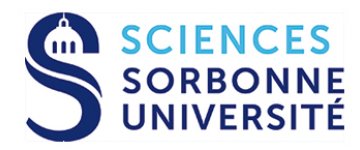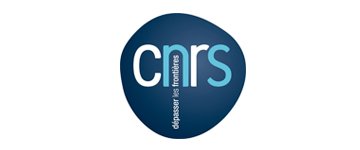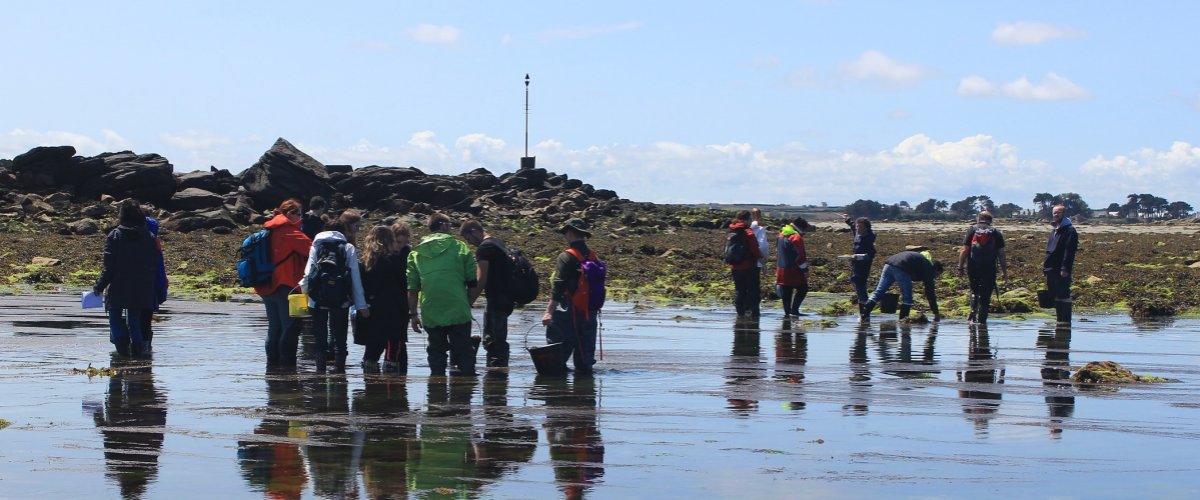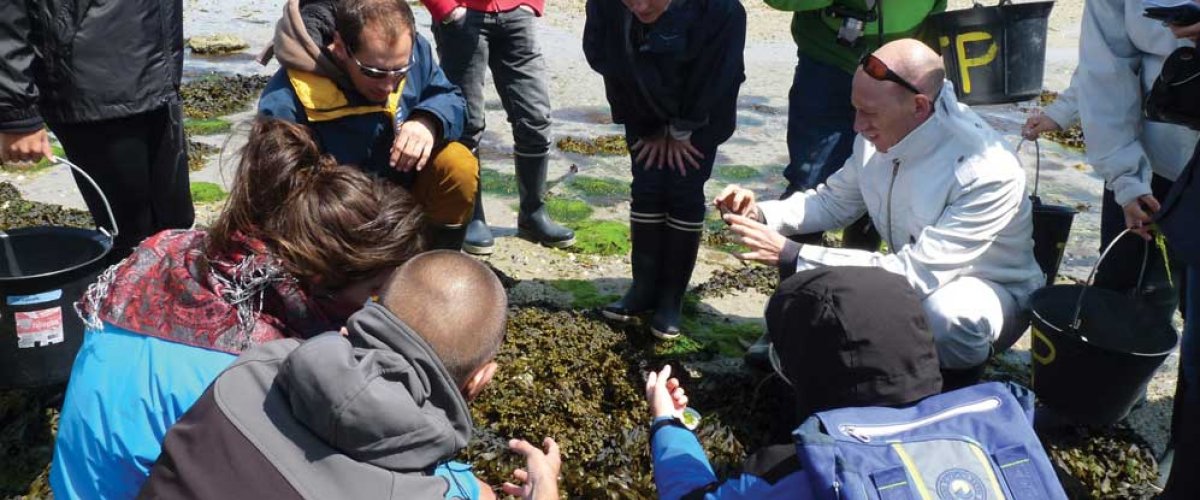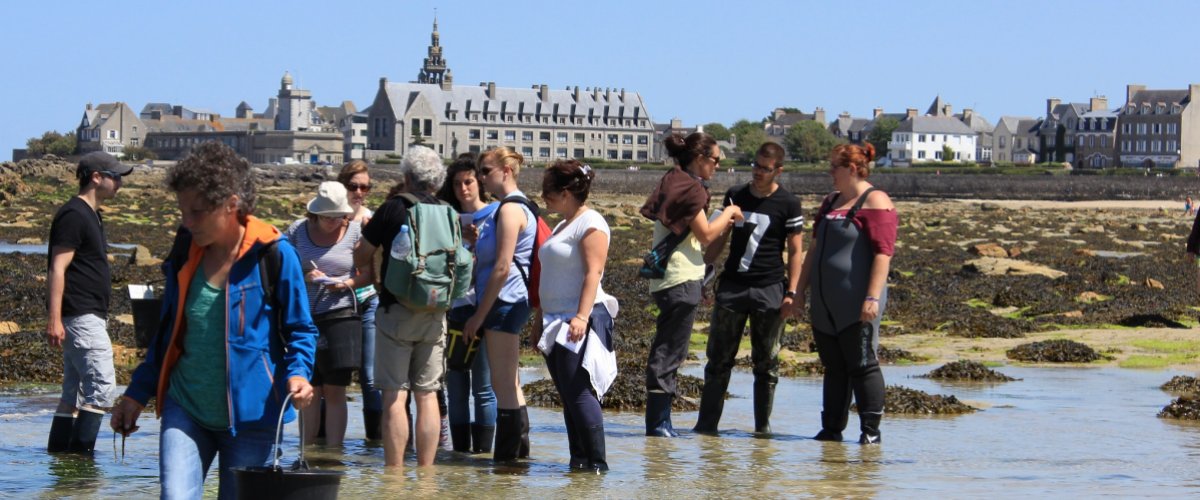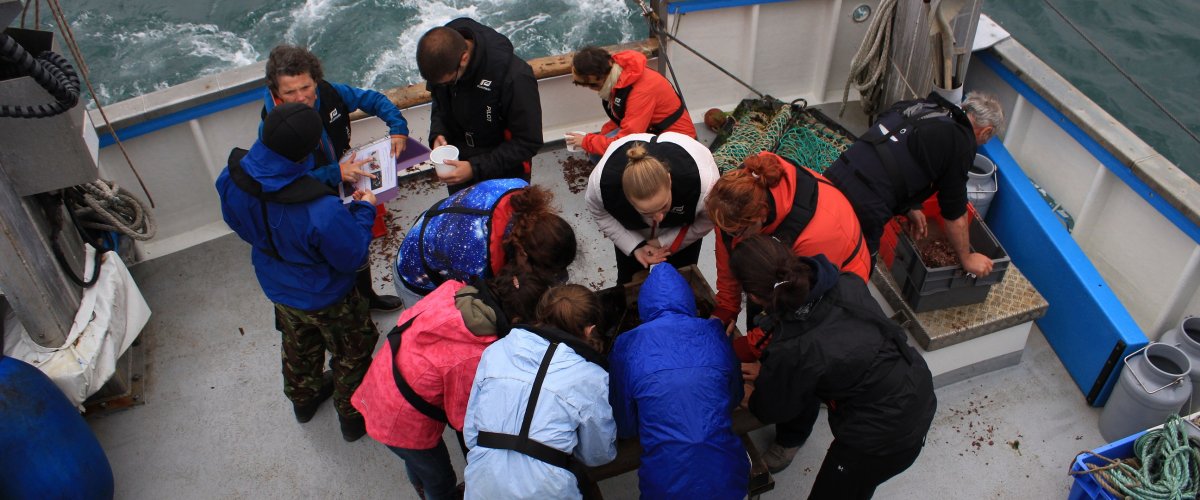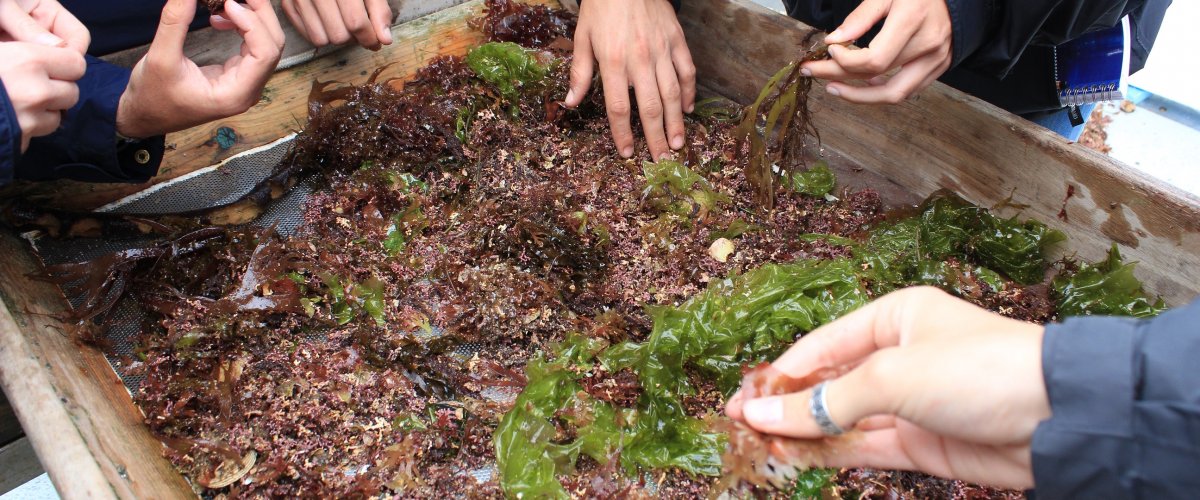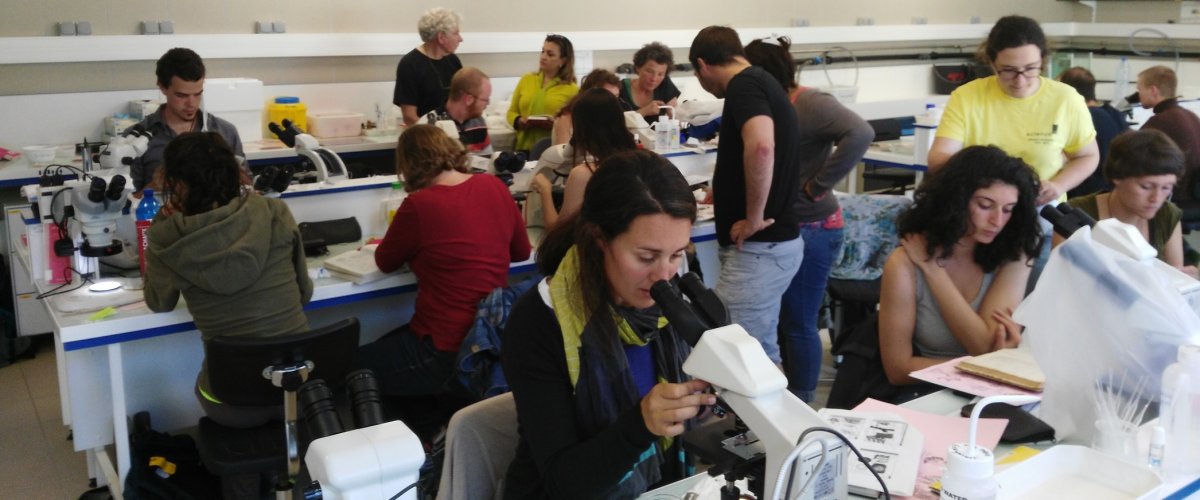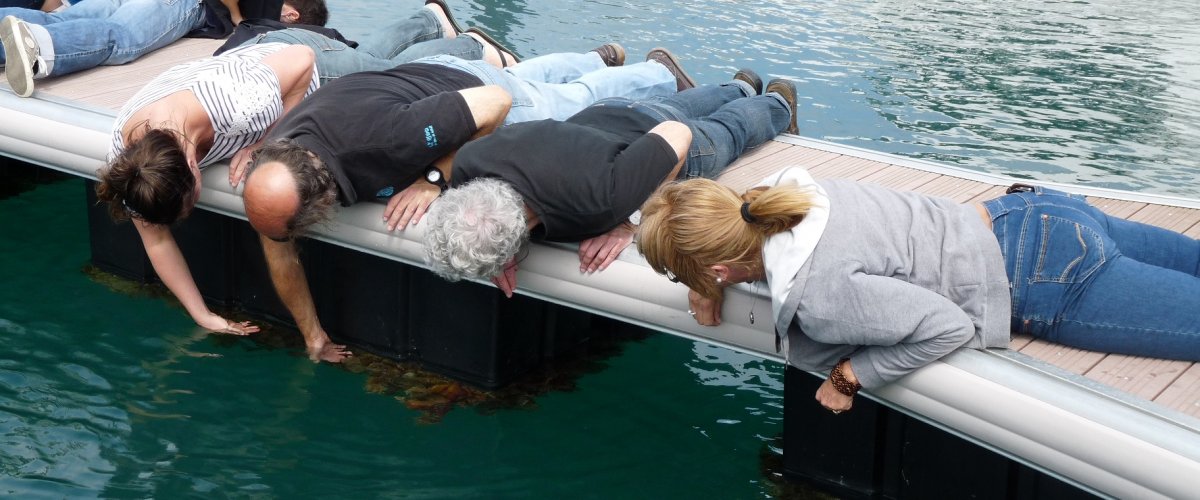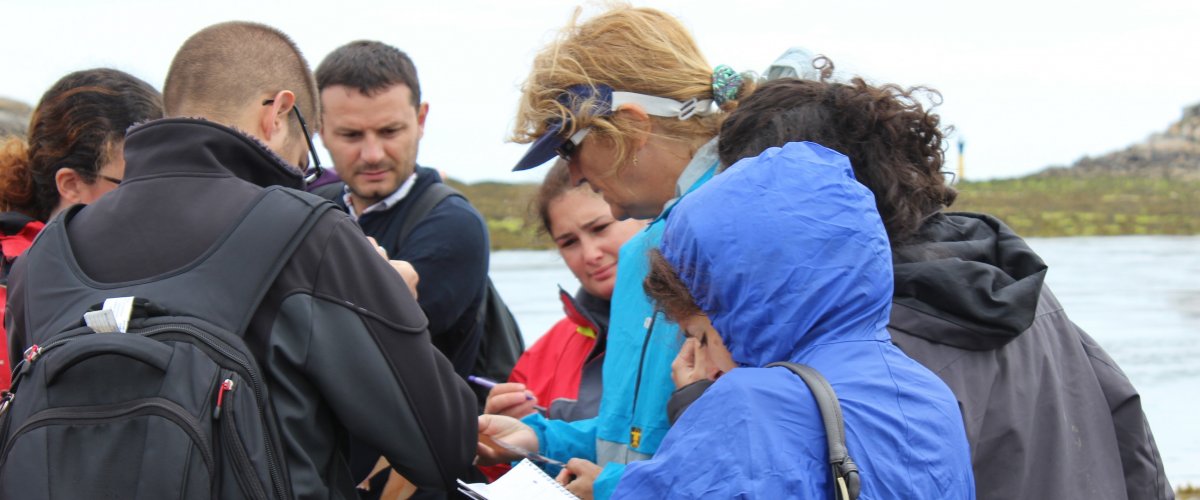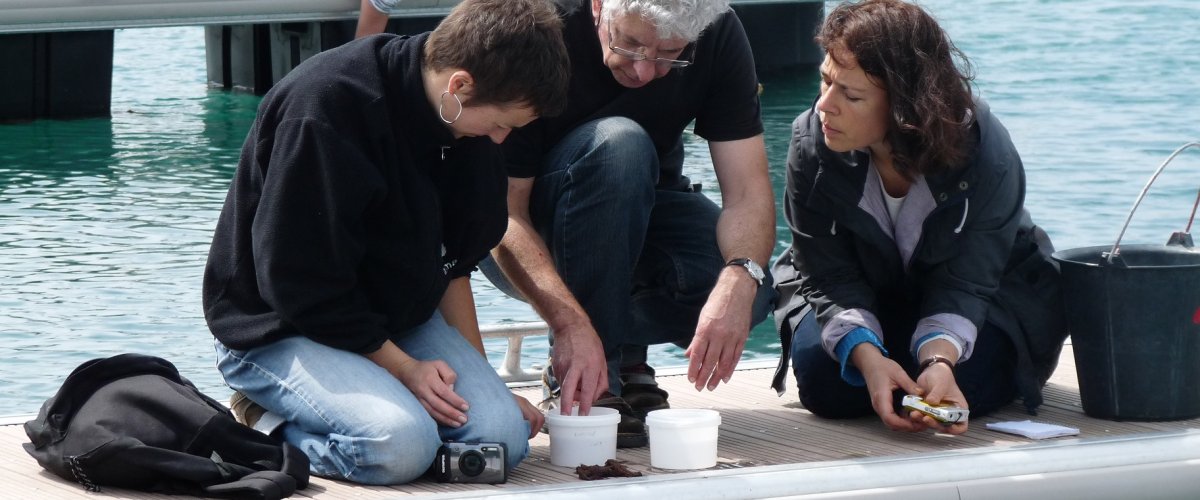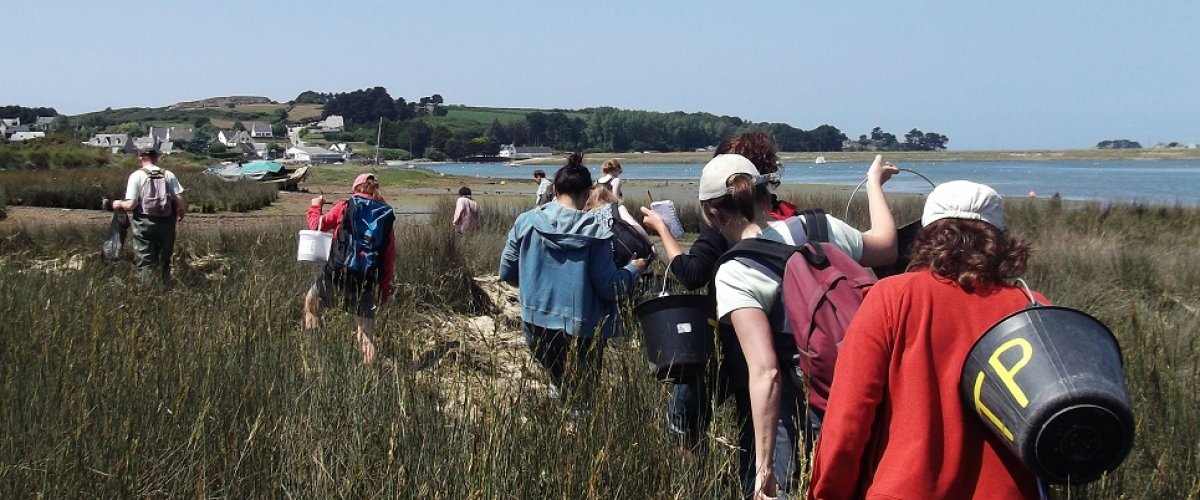Taxonomy of Marine Flora : 7 - 25 July 2025
You can now pre-register for the 2025 Flora course - see link below . This master degree summer course is a hands-on introduction to marine plants with an emphasis on seaweeds. It trains you to recognise and identify the typical marine algae in various coastal habitats. The organisms are studied in their environment during field trips, and also in vivo back at the laboratory. These studies form the foundation from which the main issues in the systematics, biology, ecology and evolution of marine flora are addressed.
Course description
The course includes :
- Fieldwork: Five field trips to very contrasting coastal and nearshore habitats are organised. Located within 40 km from Roscoff, the field sites are accessible during low tide. Samples from pelagic and subtidal environments are taken during an outing on one of the SBR’s vessels (when possible).
- Practical coursework: in vivo observation of sampled species under a dissecting microscope or optical microscope to study the biological and taxonomic criteria presented during lectures. Each student has access to a microscope and a dissecting microscope during the whole course.
- Exercises in using identification keys: Students have access to a number of specialised works and teaching documents designed for the course to identify the species collected during field trips. Students also have access to tools available on-line.
- Lectures on the characteristics of the main phyla of seaweed: morphology, anatomy, reproduction, ecology, classification (including molecular phylogeny).
- Projects : students participate to a collaborative work to produce a list of native or introduced species that grow in artificial habitats (leisure harbor) of Roscoff. They can also prepare a herbarium.
The course is organised by the Station Biologique de Roscoff, which offers many possibilities for studying the temperate marine flora. It provides access to a a wide range of habitats: rocky to sandy/muddy substrates, exposed to sheltered shores, etc.
The course instructors are research lecturers in phycology who have extensive teaching experience on seaweed biodiversity in coastal and nearshore environments.
- Nathalie Simon, Christophe Six (Sorbonne Université, Roscoff)
- Conxi Rodríguez-Prieto (Universitat de Girona, Girona, Spain)
- Line Legall (National Natural History Museum,Paris)
- Florence Rousseau (Sorbonne Université)
- Andrés Ritter (CNRS)
Topics addressed during the course:
- Introduction to the systematics, phylogeny and taxonomy of the main groups of seaweeds
- Cytological, biochemical, ecological features of the main groups green, red and brown seaweeds; diatoms and dinoflagellates are also briefly introduced
- Reproductive features and life cycles of algae
- Introduction to marine microalgae and marine plants diversity
Fieldwork:
- Exploration of various coastal habitats; rocky habitats (3 outings), sandy/muddy habitats (1 outing), artificial habitat (1 outing), subtidal and pelagic habitats (1 outing depending on the availabilty pf the vessel), analysis of typical species collected, identification in the field
- Analysis of habitats and the effect of biotic and abiotic factors on species distribution (vertical zonation of seaweed, exposure to waves, nature of the substrate, etc.).
Practical laboratories:
- Observation of the distinctive characteristics of the main groups of seaweed (cytology, anatomy, reproduction) on live material
- Practice in using species identification keys
- Practice in preparing slides for observation under the microscope
- Extraction and analysis of pigments from frewh algae
Independent study:
- Students participate to a collaborative work to produce a list of native and introduced species that grow in artificial habitats (leasure harbor, Roscoff)
- Herbaria are prepared
The course constitutes a solid knowledge base on
- the systematics and identification of the major seaweed phyla and the marine species most frequently encountered on English Channel coasts;
- methods for determining marine algal species down to the species level;
- demonstration of morphological and functional features as well as the lifestyle of seaweeds on the coast;
- characterisation of the main types of coastal and nearshore environments along with their typical species composition.
Course certification
The course is part of the Sorbonne Université - Science of Universe, Environment , Ecology Masters program and the student can validate 6 ECTS units.
The course can be accredited by a Doctoral School.
This course is open to 1rst year master students and superior level and thrid year undergraduate student if they can prove to have validated their exam before the beginning of the course
These summer schools are also open to professionnal whose professionnal activities require knowledge in systematics, biology and marine ecology.
The Flora course is given in english.
This is the list of document you will have to upload during the registration process
Copy of ID or passeport
CV
Letter describing your motivation and interest for the course
Last 2 semesters transcripts
Your last diploma
Student card or registration certificate for the current year 2024 - 2025
Answer to your application will be given to you through the e-candidat platform
You will then have to confirm your participation.
Registration Fee. Due if you are selected
Registration for student from a foreign university : 70€ (registration at Sorbonne University) + 103€ CVEC https://cvec.etudiant.gouv.fr/ (national fee for university registration) CAREFUL : Wait for the result of your selection before you start this formality
Professionnals : Don't have to register on line - contact us directly . The fee for professionnal is 900€
Contact ccabresin@sb-roscoff.fr for more information
- A dissection kit with the usual dissection tools (in particular, precision forceps, precision scissors, razor blades)
- A package of white paper (plain paper or Bristol paper for herbarium mounts of specimens), paintbrushes for smoothing out filamentous species and old, clean cloths or pieces of nylon stockings for blotting seaweeds
- A lab coat
- A pair of rubber boots for field outings, warm old clothes and rain gear
- If possible a camera and labtop computer.
Accommodation is available at the CNRS-operated Hôtel de France. Single or double rooms, according to availability.
From Monday to Friday, lunch is available at the Gulf Stream CNRS-operated restaurant.
FEES 2025
Room + breakfast: 11 € per night
Lunch: 3,30€ € at the Station restaurant
You will also have access to an equiped kitchen for your evening meals
